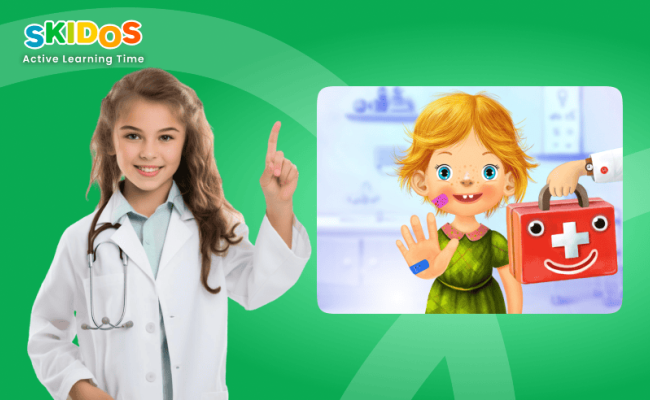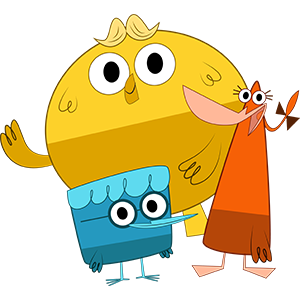Cognitive Development: Sharpening Young Minds
The SKIDOS Doctor game engages children in problem-solving tasks that boost cognitive development. Kids diagnose and treat patients, such as fixing teeth or bandaging injuries, requiring them to understand cause-and-effect and make decisions. For example, choosing the right tool to clean a tooth or treat a wound enhances logical thinking and pattern recognition. Such activities improve cognitive skills by stimulating reasoning and memory. By solving medical challenges, kids build critical thinking skills essential for academic success and real-world problem-solving.
Why It Matters: Cognitive development lays the foundation for school readiness, helping kids tackle complex concepts with confidence.
Executive Function: Planning and Focus Through Play
SKIDOS Doctor strengthens executive function by encouraging strategic thinking and planning. Children manage tasks like selecting tools, prioritizing treatments, and following multi-step processes to help patients. For instance, they might need to clean, fill, and polish a tooth in sequence, requiring focus and organization. Such structured tasks enhance attention and self-regulation, key components of executive function. These skills help kids excel in academics and manage daily responsibilities.
Why It Matters: Executive function fosters goal-setting and decision-making, preparing kids for structured learning environments.
Creative Imagination: Sparking Innovation Through Pretend Play
Pretend play as a doctor or dentist in SKIDOS Doctor Game ignites creative imagination. Kids invent scenarios, like saving a patient or running a clinic, using vibrant tools and colorful settings. This mirrors real-world role-play, encouraging symbolic thinking and storytelling. Imaginative play fosters creativity and problem-solving flexibility. By exploring medical roles, kids stretch their imaginations, creating unique narratives that boost confidence and innovation.
Why It Matters: Creative imagination drives innovative thinking, helping kids approach challenges with originality.
Social & Emotional Development: Building Empathy and Resilience
SKIDOS Doctor nurtures social & emotional development by letting kids care for virtual patients, fostering empathy and emotional understanding. Helping a character feel better after a “boo-boo” teaches kids to relate to others’ feelings, mirroring real-life caregiving. Role-playing games promote emotional resilience and social skills by encouraging empathy. The game’s positive feedback, like happy patients, reinforces kindness and emotional regulation.
Why It Matters: Social-emotional skills build healthy relationships and emotional well-being, crucial for lifelong success.
Motor Skills: A Natural Benefit of Interactive Gameplay
Every swipe, tap, and drag in SKIDOS Doctor enhances motor skills by default. Actions like dragging a bandage or tapping to clean teeth refine fine motor coordination and hand-eye coordination, essential for tasks like writing or sports. Interactive gameplay strengthens motor skills through goal-oriented actions. These movements make learning physically engaging and fun.
Why It Matters: Motor skills support physical development, boosting confidence in daily activities.
Why Parents Love SKIDOS Doctor
Parents find SKIDOS Doctor a game-changer for its educational value and engagement:
Fun and Safe: Safe, child-friendly content ensures worry-free play
Holistic Growth: Targets multiple skills, complementing academic learning.
Parental Involvement: Parents can discuss game scenarios (e.g., “How did you help the patient?”), fostering bonding and reinforcing lessons.
SKIDOS Doctor turns screen time into a meaningful learning experience, making it a favorite for families seeking educational fun.
References
American Academy of Pediatrics (2018). The Power of Play.
Cognitive Development
Executive Function
Social & Emotional Development
Creative Imagination
Motor Skills


